Ep. 82: Richard Stavis, Chief Sustainability Officer at Stavis Seafood -ft. cohost: Scott Soares, former Mass Ag Commish & shellfish farming leader ||
Joining for episode 82 of Sourcing Matters is Richard Stavis – Chief Sustainability Officer of the Iconic New England Brand – Stavis Seafood. Stavis Seafoods has been an anchor of the international seafood industry for 90 years. From its origin Stavis quickly grew from a clam company to a one-stop-source for high quality seafood, now delivering more than 1000 seafood items nationwide from more than 48 countries around the globe.
.
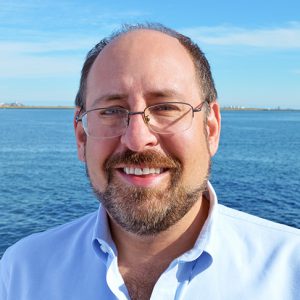 Stavis is also a leading importer into the Florida seafood market specializing in fresh seafood from Central & South America. Stavis Seafoods recently launched seafood line ‘SeaTru’ that comes in tow with the tagline of “high-quality seafood that is completely traceable, socially responsible, and sustainably sourced.”
Stavis is also a leading importer into the Florida seafood market specializing in fresh seafood from Central & South America. Stavis Seafoods recently launched seafood line ‘SeaTru’ that comes in tow with the tagline of “high-quality seafood that is completely traceable, socially responsible, and sustainably sourced.”
.
Richard Stavis wants the industry to shift from talking about what’s “sustainable” to what’s “responsible” – and not just tracing fish but also ensuring that fish is what sellers say it is. Richard is well known for his vision for the near future in the industry when emerging technologies allow for standardized platforms – like how any bank card works at an ATM – so consumers/ retailers/ restaurant chains can get the information they need about the fish they eat and sell, through information-sharing.
.
Joining for our 45 minute discussion is the former commissioner of Agriculture in MA and the Rural Development Agent for New England with the USDA – Scott Soares. During our lively conversation we cover the stability of the oceans, the health of our fisheries and the industry that serves it, and the well-being of its consumers. TuneIn to hear what’s going on with our changing waters.
.
@StavisSeafoods
co-host:
Scott Soares
- Former Commissioner MA Agriculture
- Dir. USDA Rural Dev Northeast for Obama administration
- 15 years of fishery & Aquaculture experience
- Served as 1st MA coordinator of aquaculture for a decade
@SjSoares65


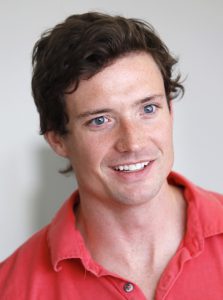 BIO: Luke Holden grew up in Cape Elizabeth, Maine – a third-generation lobsterman who started learning the trade at age 13. After attending Georgetown University and beginning an investment banking career on Wall Street, Luke was remiss to find that every lobster roll available in New York was overpriced, drowning in mayo, and diluted with celery. He craved a real Maine-style roll and simply couldn’t find one.
BIO: Luke Holden grew up in Cape Elizabeth, Maine – a third-generation lobsterman who started learning the trade at age 13. After attending Georgetown University and beginning an investment banking career on Wall Street, Luke was remiss to find that every lobster roll available in New York was overpriced, drowning in mayo, and diluted with celery. He craved a real Maine-style roll and simply couldn’t find one.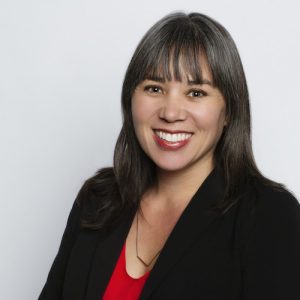 BIO: Before joining the foundation, Teresa Ish was the seafood project manager for the Corporate Partnerships Program at Environmental Defense Fund, where she worked with leading seafood buyers to develop and implement sustainable seafood purchasing policies. During her tenure at EDF, she played an instrumental role in merging the organization’s seafood buyer work and its extensive experience in the fishery policy arena. Prior to joining EDF, she co- founded FishWise and served as its director of science.
BIO: Before joining the foundation, Teresa Ish was the seafood project manager for the Corporate Partnerships Program at Environmental Defense Fund, where she worked with leading seafood buyers to develop and implement sustainable seafood purchasing policies. During her tenure at EDF, she played an instrumental role in merging the organization’s seafood buyer work and its extensive experience in the fishery policy arena. Prior to joining EDF, she co- founded FishWise and served as its director of science.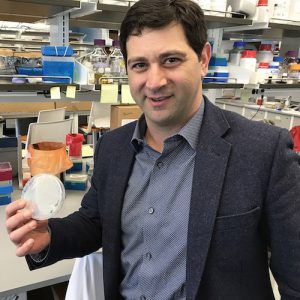 Accounting for over 50% of total seafood sourced, aquaculture has developed some scale issues.. It’s not as simple as saying that we’ll continue to move in the direction of farming more fish. It’s not just about the higher trophic level fish we consume. The issue is that much of the aquaculture infrastructure is reliant on pulling from the smaller fish in the sea – to feed the larger fish we consume. The alternative feedstuff for our aquaculture fish can also often soy, or other crops grown on land using input-based conventional practice leading to an unsustainable perpetual cycle of robbing Peter to pay Paul.
Accounting for over 50% of total seafood sourced, aquaculture has developed some scale issues.. It’s not as simple as saying that we’ll continue to move in the direction of farming more fish. It’s not just about the higher trophic level fish we consume. The issue is that much of the aquaculture infrastructure is reliant on pulling from the smaller fish in the sea – to feed the larger fish we consume. The alternative feedstuff for our aquaculture fish can also often soy, or other crops grown on land using input-based conventional practice leading to an unsustainable perpetual cycle of robbing Peter to pay Paul.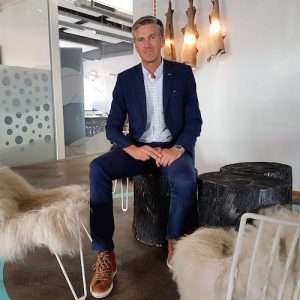 Beginning with the Ocean Cluster House in Reykjavik harbor – The Iceland Ocean Cluster is now pooling together satellite locations in coastal cities of the US, and eventually the World – in effort to work in unison in tackling many of the biggest problems facing our shrinking planet. Each cluster site will be filled with like minded entrepreneurs and a business ecosystem to support and invest in a replicable model for a modern marine innovation economy. During our 40 minute conversation we learn that fishing communities around the globe have many similar fish-to-fry. We learn that there are fundamental problems with an antiquated seafood industry, and in dealing with our warming Oceans which need new perspective – now!
Beginning with the Ocean Cluster House in Reykjavik harbor – The Iceland Ocean Cluster is now pooling together satellite locations in coastal cities of the US, and eventually the World – in effort to work in unison in tackling many of the biggest problems facing our shrinking planet. Each cluster site will be filled with like minded entrepreneurs and a business ecosystem to support and invest in a replicable model for a modern marine innovation economy. During our 40 minute conversation we learn that fishing communities around the globe have many similar fish-to-fry. We learn that there are fundamental problems with an antiquated seafood industry, and in dealing with our warming Oceans which need new perspective – now!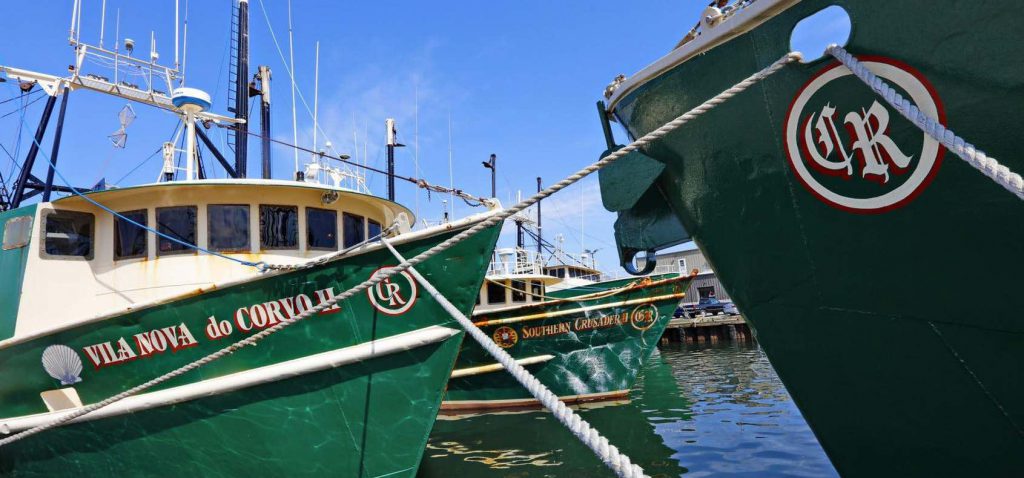
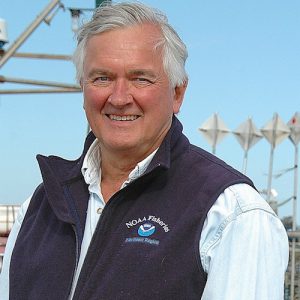 In episode 60 of Sourcing Matters John Bullard also shares some interesting stories about his roles prior to the Greater Atlantic Region at NOAA Fisheries. John Bullard (1) was past mayor of New Bedford, (2) he had a lead role at NOAA Sustainability within the Clinton administration, (3) he was past president of Sea Education Association, and as younger man he received a BA From Harvard and Masters in Architecture from MIT. An engaging dude with some interesting stories to tell. I hope our listening audience that are out on the water everyday listen to this conversation with John. You’ll be especially interested to hear his POV, and to learn whose corner he’s truly in. Tune-In
In episode 60 of Sourcing Matters John Bullard also shares some interesting stories about his roles prior to the Greater Atlantic Region at NOAA Fisheries. John Bullard (1) was past mayor of New Bedford, (2) he had a lead role at NOAA Sustainability within the Clinton administration, (3) he was past president of Sea Education Association, and as younger man he received a BA From Harvard and Masters in Architecture from MIT. An engaging dude with some interesting stories to tell. I hope our listening audience that are out on the water everyday listen to this conversation with John. You’ll be especially interested to hear his POV, and to learn whose corner he’s truly in. Tune-In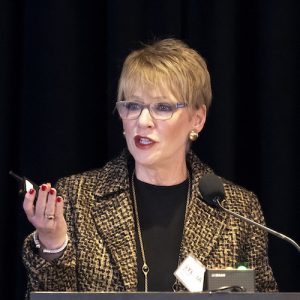 Prior to AquaBounty, Sylvia was President of StockYards, SVP of Merchandising, and President of the Manufacturing Division for US Foods. A $23 billion broad line foodservice distributor, US Foods is the the 2nd largest foodservice distributor in the US. Wulf was responsible for the P&L of the $10 billion protein and produce categories and the $1 billion Manufacturing Division of U.S. Foods Meat, Seafood and Produce operations. While leading this anchor division, Wulf developed a source to sale strategic approach that not only improved profitability but drove growth in market share at 3X the industry average. In her numerous roles responsibilities included the P&L of Perishables categories, centralized sourcing/replenishment, 15 manufacturing facilities for Meat and produce.
Prior to AquaBounty, Sylvia was President of StockYards, SVP of Merchandising, and President of the Manufacturing Division for US Foods. A $23 billion broad line foodservice distributor, US Foods is the the 2nd largest foodservice distributor in the US. Wulf was responsible for the P&L of the $10 billion protein and produce categories and the $1 billion Manufacturing Division of U.S. Foods Meat, Seafood and Produce operations. While leading this anchor division, Wulf developed a source to sale strategic approach that not only improved profitability but drove growth in market share at 3X the industry average. In her numerous roles responsibilities included the P&L of Perishables categories, centralized sourcing/replenishment, 15 manufacturing facilities for Meat and produce.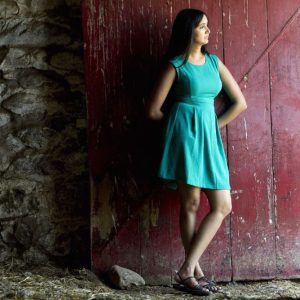 Faruqi’s previous work ‘Project Animal Farm’ was released in 2015. This non-fiction work looked at the world’s food system through chronicling a journey to 60 animal farms in 8 countries. Faruqi combines her hands-on immersive learning with analysis on modern global agricultural models. The well researched book comes in tow with recommendations, and food sustainability solutions for many of these international issues. She has some heavy hitters in food, agriculture and ocean health singing her praises.
Faruqi’s previous work ‘Project Animal Farm’ was released in 2015. This non-fiction work looked at the world’s food system through chronicling a journey to 60 animal farms in 8 countries. Faruqi combines her hands-on immersive learning with analysis on modern global agricultural models. The well researched book comes in tow with recommendations, and food sustainability solutions for many of these international issues. She has some heavy hitters in food, agriculture and ocean health singing her praises.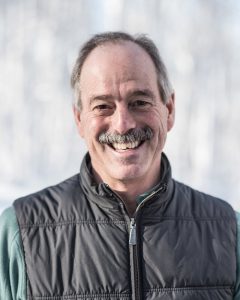 They’re surely good eating, but oysters represent so much good to their surrounds, the shared environments, and the communities they support. You see, each adult oyster filters 50 gallons of water daily, they restore keystone marine ecosystems, and they build protective reefs around susceptible coastal communities – protecting us from storm surge and severe weather events. In this 45 minute discussion Bill Mook goes into details describing why Oysters are so important to the stability of seas, and to our planet. As you’ll hear, Mook has implemented bleeding-edge R&D in his hatchery that is second to none. Innovations include development of methods for overwintering seed out of the water; a tidal powered nursery system; a vessel and gear for mechanizing the use of OysterGro™ cages; and a unique, energy efficient, and highly productive system for growing the micro-algae we use for food in the hatchery. Effectively his approach to “brew” feed for Oysters, or for other animals for that matter, sets to be revolutionary.
They’re surely good eating, but oysters represent so much good to their surrounds, the shared environments, and the communities they support. You see, each adult oyster filters 50 gallons of water daily, they restore keystone marine ecosystems, and they build protective reefs around susceptible coastal communities – protecting us from storm surge and severe weather events. In this 45 minute discussion Bill Mook goes into details describing why Oysters are so important to the stability of seas, and to our planet. As you’ll hear, Mook has implemented bleeding-edge R&D in his hatchery that is second to none. Innovations include development of methods for overwintering seed out of the water; a tidal powered nursery system; a vessel and gear for mechanizing the use of OysterGro™ cages; and a unique, energy efficient, and highly productive system for growing the micro-algae we use for food in the hatchery. Effectively his approach to “brew” feed for Oysters, or for other animals for that matter, sets to be revolutionary.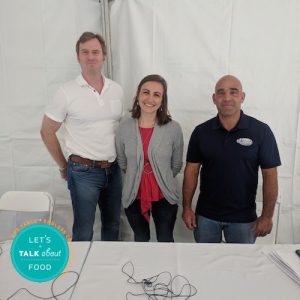 Sourcing Matters ep.
Sourcing Matters ep.